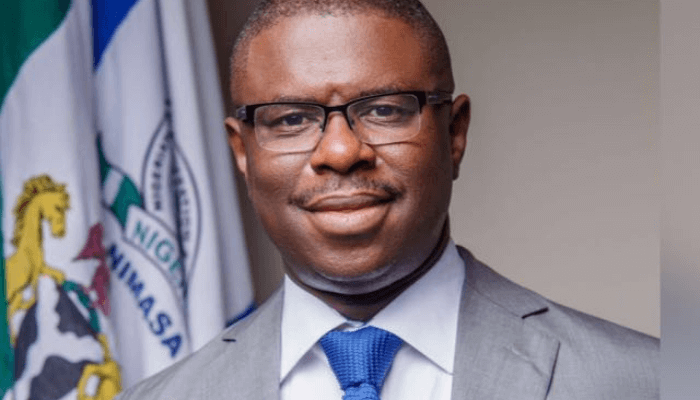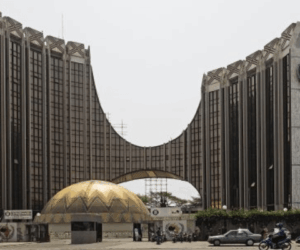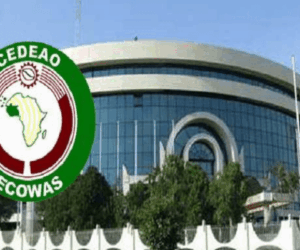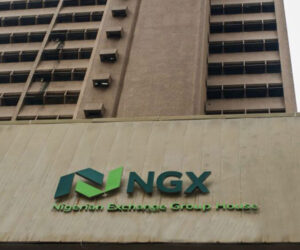Some of Nigeria’s most respected voices in religion, politics, and academia have thrown their weight behind a new book, Beneath the Surface, written by Dakuku Peterside. The book, which brings together essays and policy writings, has been praised as a powerful contribution to Nigeria’s search for good governance, national growth, and democratic stability. Those who endorsed the work include Catholic Bishop Matthew Kukah, former Ekiti State Governor Dr. Kayode Fayemi, Professor Anya O. Anya, and Professor Kyari Mohammed. Their combined reputations cover decades of leadership in the church, government, science, history, and nation-building, giving the book a strong vote of confidence.
The four leaders are not just ordinary commentators. Bishop Kukah is known worldwide for speaking truth to power and defending democracy. Fayemi, besides serving as governor, is a respected scholar of war studies. Prof. Anya has led top scientific and economic institutions in Nigeria, while Prof. Mohammed is a renowned historian and former vice-chancellor of two universities. For such seasoned figures to unite in praising one book signals that Beneath the Surface is more than just another publication. It is being recognized as a roadmap for Nigeria’s future.
Bishop Kukah, who has authored books on politics, religion, and social responsibility, described Peterside’s work as a refreshing collection. In his words, the book is “a salad plate of exquisite writing” that combines deep thought with engaging storytelling. He noted that it opens a new window for Nigerians to think about fresh options for the country’s progress. Kukah’s endorsement matters because he has long been a moral voice in Nigeria’s public life. His description of the book as “exciting and alluring” suggests that readers will not only gain insights but also enjoy the writing style.
For Fayemi, who governed Ekiti State and also served as Minister of Solid Minerals, Peterside represents a rare blend of politician and intellectual. He said Peterside’s essays revive the tradition of leaders who think deeply about society rather than simply chasing power. According to Fayemi, the book highlights Nigeria’s weaknesses but also shows the “immense possibilities of building a nation where justice and peace prevail.” He called it “a must-read,” especially for anyone hoping to understand the roots of Nigeria’s challenges.
Professor Anya, who once led the Nigerian Academy of Science and co-founded the Nigerian Economic Summit Group, praised the book for being both insightful and easy to read. He said Peterside’s wide experience in public service gives the essays a unique authority. At the same time, he noted that the book raises a painful but necessary question: why does Nigeria, despite having abundant talent and resources, continue to underperform? For Anya, the book does not just criticize—it pushes readers to reflect on the gap between Nigeria’s potential and its reality.
Mohammed, a respected historian and former university leader, described “Beneath the Surface” as a “comprehensive exploration” of Nigeria’s politics and society. He emphasized that Peterside avoids the trap of endless lamentation. Instead, the essays point out practical ways forward, offering guidance for policymakers, academics, and ordinary citizens. He concluded that the book is essential reading for anyone serious about Nigeria’s future.
At the heart of Beneath the Surface is Peterside’s attempt to answer why Nigeria struggles with governance, despite its human and natural wealth. The book compiles his most powerful essays, blending analysis with relatable storytelling. The themes span across politics, governance, economy, and social life. Peterside does not just point out problems but also suggests reforms. He stresses accountability, stronger institutions, and investment in human development as keys to unlocking Nigeria’s progress. By writing in a style that balances intellectual depth with clarity, Peterside makes the book accessible to different audiences: government officials, business leaders, students, scholars, and ordinary Nigerians curious about the forces shaping their nation.
Nigeria is at a critical point in its democratic journey. With rising economic pressures, security threats, and governance gaps, many citizens feel frustrated about the direction of the country. Books like Beneath the Surface tap into this frustration but also offer hope by laying out practical ideas for change. The endorsements from Kukah, Fayemi, Anya, and Mohammed show that the book is striking the right chords. Coming from leaders who have themselves faced Nigeria’s challenges firsthand, their praise gives weight to the argument that Peterside’s work deserves national attention.









